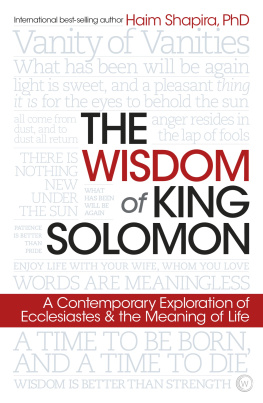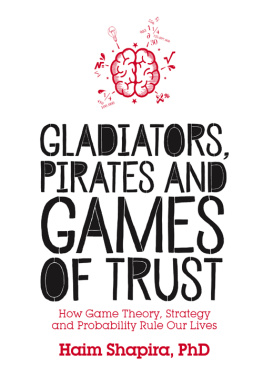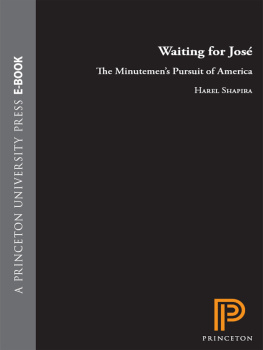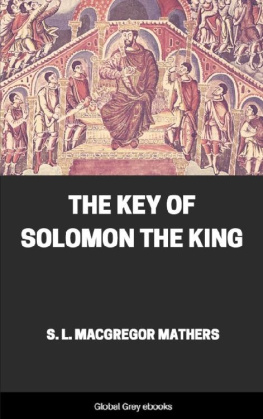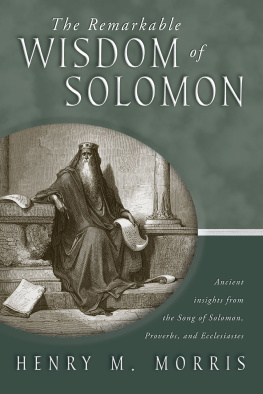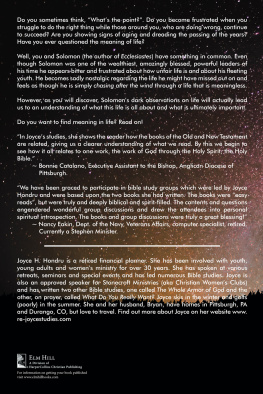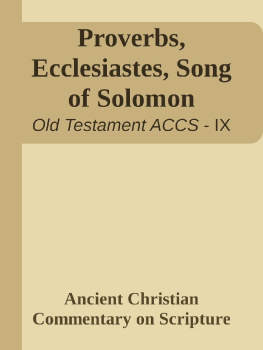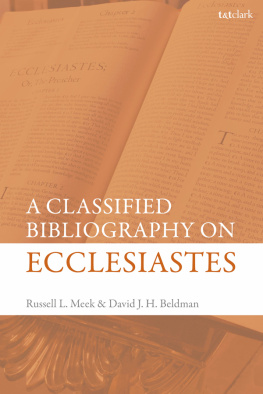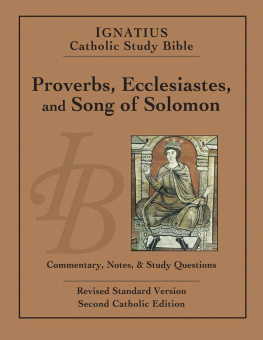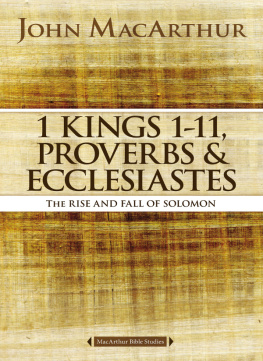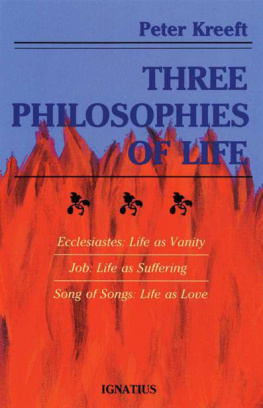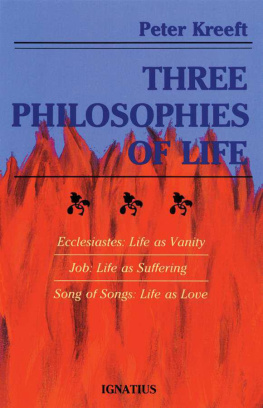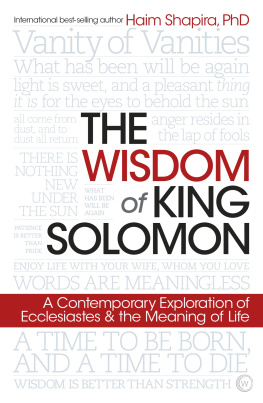Haim Shapira was born in Lithuania in 1962. In 1977 he emigrated to Israel, where he earned a PhD in mathematical genetics for his dissertation on Game Theory and another PhD for his research on the mathematical and philosophical approaches to infinity. He now teaches mathematics, psychology, philosophy and literature. He is an author of nine bestselling books. His stated mission as a writer is not to try to make his readers agree with him, but simply to encourage them to enjoy thinking. One of Israels most popular and sought-after speakers, he lectures on creativity and strategic thinking, existential philosophy and philosophy in childrens literature, happiness and optimism, nonsense and insanity, imagination and the meaning of meaning, as well as friendship and love. He is also an accomplished pianist and an avid collector of anything beautiful.
BY THE SAME AUTHOR:
Conversations on Game Theory
Things That Matter
Eight Lessons on Infinity: A Mathematical Adventure
Gladiators, Pirates and Games of Trust: How Game Theory,
Strategy and Probability Rule Our Lives
Nocturnal Musings
A Book of Love
Happiness and Other Small Things of Absolute Importance
A Most Beautiful Childhood Memory
The Wisdom of King Solomon
A Contemporary Exploration of Ecclesiastes and the Meaning of Life
Haim Shapira, PhD
Translated from the Hebrew
by Baruch Gefen
This edition first published in the UK and USA 2018 by
Watkins, an imprint of Watkins Media Limited
Unit 11, Shepperton House
8993 Shepperton Road
London
N1 3DF
Design and typography copyright Watkins Media Limited 2018
Text copyright Haim Shapira 2018
Haim Shapira has asserted his right under the Copyright, Designs and Patents Act 1988 to be identified as the author of this work.
Scripture taken from The Holy Bible, 21st Century King James Version (KJ21), Copyright 1994, Deuel Enterprises, Inc., Gary, SD 57237 USA, and used by permission.
All rights reserved.
No part of this book may be reproduced or utilized in any form or by any means, electronic or mechanical, without prior permission in writing from the Publishers.
1 3 5 7 9 10 8 6 4 2
Typeset by Integra Software Services Pvt. Ltd, Pondicherry
Printed and bound in the United Kingdom
A CIP record for this book is available from the British Library
ISBN: 978-1-78678-159-8
www.watkinspublishing.com
To my parents, Alexander and Tatyana Shapira
Authors Note
Quotations in English from Ecclesiastes are taken from the 21st Century King James Version, which is the 1611 King James Version slightly modified to modernize archaic vocabulary. The complete KJ21 translation of the Scroll of Ecclesiastes can be found at the back of the book (pages 22243).
Authors Acknowledgements
First and foremost, I would like to thank Etan Jonathan Ilfeld for having confidence in me and my books.
Id like to thank my faithful translator Baruch Gefen.
To Bob Saxton, who edited this book lovingly and wisely, a very big thank you.
Last but never least Id like to thank my agent Vicki Satlow, my dear friend Ziv Lewis and the books project manager Slav Todorov.
Contents
A Non-mandatory Sub-chapter
Mental Therapy According to Spinoza
Appendix The Book of Ecclesiastes
The 21st Century King James Version
KING SOLOMON: A VERY SHORT BIOGRAPHY
Just before King David dies, he appoints as king his 12-year-old son Solomon, with these words:
I go the way of all the earth. Be thou strong therefore, and show thyself a man; and keep the charge of the Lord thy God to walk in His ways, to keep His statutes, and His commandments, and His judgements, and His testimonies, as it is written in the Law of Moses, that thou mayest prosper in all that thou doest and whithersoever thou turnest thyself.
1 Kings 2:23
This classic blessing is often quoted by Jewish fathers to their 12-year-old sons on the day of their Bar Mitzvah.
So king Solomon exceeded all the kings of the earth in riches and in wisdom.
And all the earth sought Solomon to hear his wisdom, which God had put in his heart.
1 Kings 10:234
The Bible portrays King Solomon as the wisest of all men. When Solomon has a vision in Gibeon, God invites him to ask for anything, and Solomon requests a heart that hears, whereupon God gives him a wise and understanding heart like no one had before.
The best-known story of his wisdom is the Judgement of Solomon. In 1 Kings 3:1628 we hear of two mothers, each with an infant son, all living under the same roof. One of the babies dies, and each woman claims the remaining boy as her own. By a clever tactic Solomon resolves the unsolvable dispute between these two women by proposing the baby be cut in two, each woman to receive half its body. The true mother begs Solomon, Give the baby to her, dont kill him! The wise king then gives her the boy.
The Bible says that King Solomon (also known as Jedidiah, which means beloved of God), son of King David and Bathsheba, ruled over a united kingdom that stretched from the Euphrates river to the border of Egypt (1 Kings 5:1). The biblical account of the 40-year reign of Solomon (971931 BC) inspired artists, poets and theologians over the centuries to create some of the most beautiful depictions of this enlightened, benevolent, legendary, wise and unprecedentedly prosperous kingdom. King Solomons spirit appears to Dante in Heaven and the wise king also makes a surprising guest appearance in One Thousand and One Nights: he punishes a genie that displeases him by locking him in a bottle, sealed with the Solomon seal, and thrown into the sea. Islam views Solomon (Sulaymn ibn Dwd) as one of the elect of God, a divinely appointed monarch and one of the greatest world rulers, who was endowed not only with unprecedented wisdom but also with an ability to speak to animals and exert power over genies.
King Solomons palace was known for its splendour and the extent of property and people it contained, including thousands of horses and carriages, a harem of 1,000 women (the wise king had 700 wives of royal birth and 300 concubines), expensive goods from exotic countries, slaves and trade delegations. They say that when Queen Sheba brought some of her treasures to Solomons palace, she was so amazed that she lost her breath until there was no more spirit in her (1 Kings 10:5). According to the Bible, the main reason for her admiration was the clever answers King Solomon gave to all the difficult questions she thought of. It is such a pity the Bible does not say anything about either the questions or the answers.
Solomon was also noted as a superb statesman. Stories of the way he held business negotiations with the King of Tyre, his international trade of fine horses, commercial delegations and gifts he received accentuate the glorious period of the Israeli Kingdom. Unlike his father David, who was a great warrior and military leader, Solomon attained his wealth thanks to his keen mind and business skills, not by the sword. He married the daughters and sisters of neighbouring kings (such as Naamah the Ammonite, Pharaohs daughter) to form and bolster political alliances.
The crowning achievement of Solomons reign is the building of the magnificent, gold-coated Temple in Jerusalem which his father, King David, had dreamed about: a sacred building the Jewish nation has cherished for millennia since.
Sic transit gloria mundi. The Temple was destroyed by Nebuchadnezzar II after the siege of Jerusalem in 587 BC even lost temples can be cherished.
Next page
